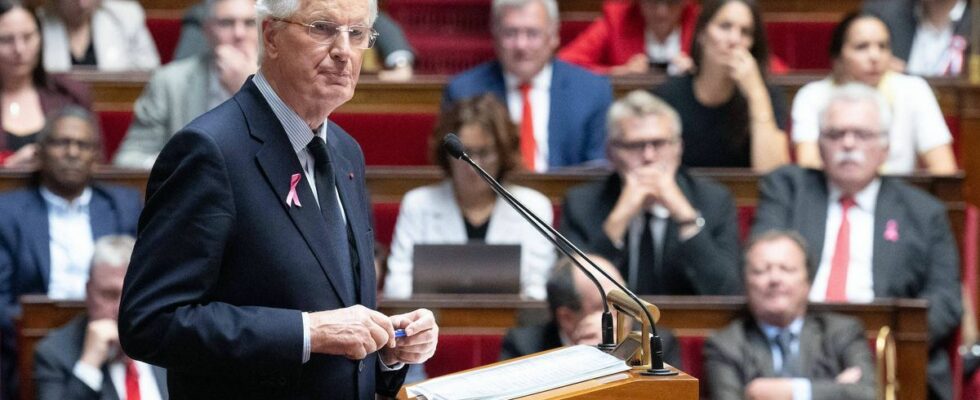Published on
updated on
Reading 3 min.
Tuesday, during his general policy speech, Prime Minister Michel Barnier gave the broad outlines of his measures in terms of health. They particularly target the functioning of the hospital and the fight against medical deserts.
Tuesday October 1, more than three weeks after his appointment, Prime Minister Michel Barnier gave his general policy speech, and discussed, among other things, his priorities in health. According to him, today it is necessary to respond to “dthem immense challenges that are the operation of the hospital and the fight against medical deserts“. Here are the measures announced to combat these problems.
Volunteers sent from medical deserts
The main announcement from the tenant of Matignon is based on the creation of an engagement program “voluntary” for medical interns so that they can temporarily practice in medical deserts. “We are going to work with all those who want it on what I will call a new program, a “Hippocrates program” for which the interns, French and foreign, would commit voluntarily, for a given period and thanks to the support of the “State and communities, to practice in the territories which lack the most doctors”.
A “nurses law”
The Prime Minister also announced a “nursing law“which will go further in recognizing their expertise and their skills and will give them an expanded role in patient care”.
The subject is not new since a bill on this subject has been awaited for more than a year by professionals, and was to be presented to Parliament in the spring, before being stopped by the dissolution. Likewise, Michel Barnier intends to go further in extending the skills of pharmacists and physiotherapists.
Support for new technologies
The Prime Minister also hopes for a faster deployment of “medical assistants”, “health buses”, “groups of health professionals” able to rely in particular onon new technologies, telemedicine, remote monitoring, the use of artificial intelligence when it is useful.
The call to retired doctors
However, Michel Barnier does not wish to neglect “human contact”in medicine. One of its solutions is to make greater use of “retired doctors, by allowing them to return to service with a favorable combination of remuneration and retirement”.
Towards the end of bureaucratic formalities
More simplicity is also a fight that is close to the heart of the Prime Minister, who intends to drastically reduce administrative paperwork. “Our health system is seriously ill with its complexity and bureaucracy.”. It is therefore necessary tackle “the simplification and elimination of these formalities to regain useful medical time but also to restore meaning to the profession of caregivers”.
Prevention and mental health highlighted
The former minister also promised to invest in prevention in particular “risky behaviors, intensification of screening, development of healthy sports”finally recalling his desire to make mental health the “great national cause 2025.
Resumption of end-of-life discussions
Finally, on the end of life, while months of work have been interrupted by the dissolution of the National Assembly, Michel Barnier assures that discussions will resume soon. “We will resume the dialogue with [les députés], with the Senate, caregivers and associations, at the beginning of next year”. At the same time, he also promises that “efforts towards the development of palliative care will be strengthened from 2025″.
The opinion of our Medical Director, Dr. Gérald Kierzek, emergency physician
“A cautery on a wooden leg! The world of health is worn out with little band-aids like health buses, medical assistants whose training we do not understand or even groups of all kinds to manage the shortage. After the Grenelle de la santé, the Ségur, here is Hippocrates! But in reality, nothing changes on the ground. We must rethink the governance of the system by debureaucratizing not only the paperwork of general practitioners (we must do it of course) but by debureaucratizing the Regional Health Agencies, the bloated management in hospitals which leads to waste of resources and by changing the thinking heads at the highest level of the State. However, I see that we take the same ones and start again, regardless of the Minister or the Prime Minister. We must give control back to health professionals on the ground and trust them again to treat the sick, save money in the long term and re-motivate the troops.“.

